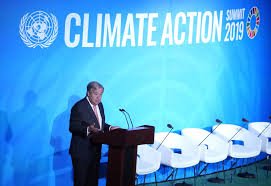The recent UN Summit held to address the global climate crisis has brought together leaders, activists, and scientists from around the world to discuss urgent actions needed to combat climate change. In this article, we delve into the key discussions, initiatives, and challenges highlighted during the summit, emphasizing the importance of collective efforts to mitigate the impacts of climate change.
Understanding the Climate Crisis
The Urgency of Action
Climate change poses an existential threat to our planet, with rising temperatures, extreme weather events, and environmental degradation endangering ecosystems and communities worldwide. Urgent action is needed to curb greenhouse gas emissions and transition to sustainable practices.
The Role of the UN
The United Nations plays a pivotal role in addressing the climate crisis, facilitating international cooperation, setting targets, and mobilizing resources to support climate action. The annual UN Climate Change Conferences provide a platform for nations to negotiate agreements and commitments to reduce emissions.
Key Discussions at the Summit
Carbon Neutrality Targets
One of the central themes of the summit was the need for countries to set ambitious carbon neutrality targets to limit global warming to 1.5 degrees Celsius above pre-industrial levels. Several nations pledged to achieve net-zero emissions by 2050 or earlier, signaling a commitment to decarbonize their economies.
Renewable Energy Transition
Transitioning to renewable energy sources such as solar, wind, and hydropower was highlighted as a critical step in reducing reliance on fossil fuels and mitigating climate change. Investments in renewable energy infrastructure and technologies are essential to accelerate the transition and achieve emissions reductions.
Nature-Based Solutions
Nature-based solutions, including reforestation, afforestation, and ecosystem restoration, were emphasized as cost-effective strategies for sequestering carbon and enhancing resilience to climate impacts. Protecting and restoring natural habitats can help safeguard biodiversity and mitigate the effects of climate change.
Challenges and Opportunities
Political Will and Cooperation
Despite growing awareness of the climate crisis, political will and cooperation remain key challenges in implementing effective climate policies. International agreements such as the Paris Agreement provide a framework for collaboration, but more ambitious action is needed to meet climate targets.
Equity and Justice
Addressing climate change requires a just and equitable transition that considers the needs and vulnerabilities of marginalized communities. Social justice, human rights, and gender equality must be integrated into climate policies to ensure that no one is left behind in the transition to a sustainable future.
The UN Summit on the global climate crisis underscores the urgent need for collective action to address one of the most pressing challenges of our time. By committing to ambitious targets, investing in renewable energy, and prioritizing nature-based solutions, nations can work together to build a more resilient and sustainable future for all.




